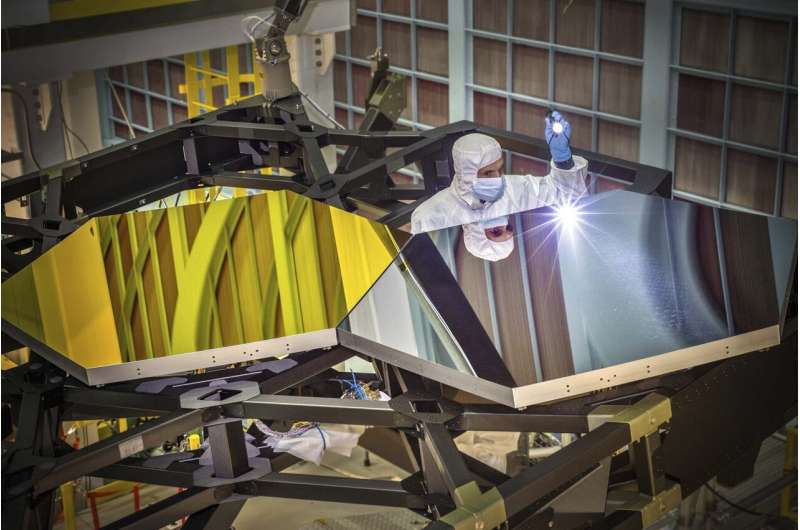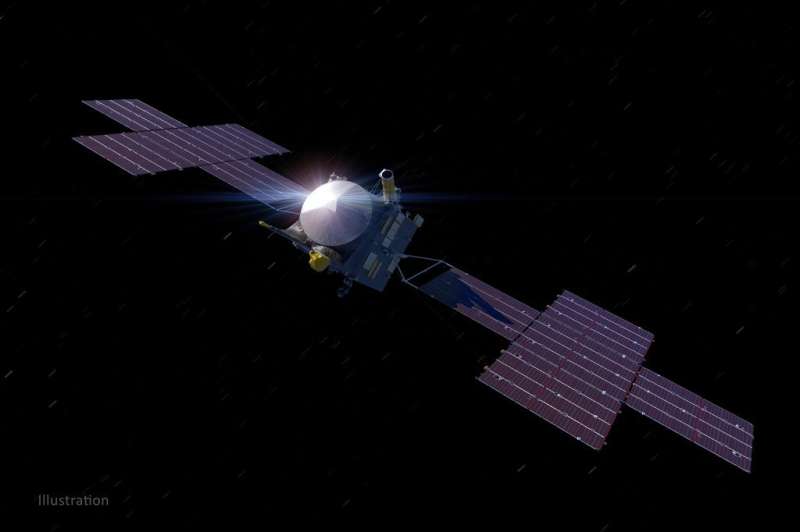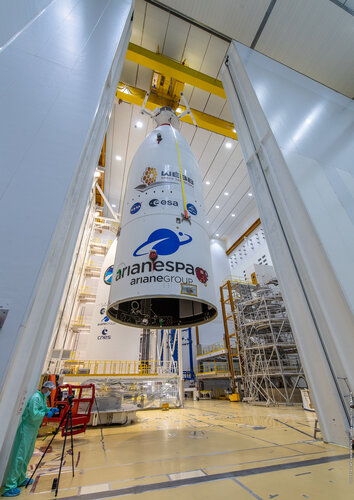
Copernical Team
Comets' heads can be green, but never their tails
 Every so often, the Kuiper Belt and Oort Cloud throw galactic snowballs made up of ice, dust and rocks our way: 4.6-billion-year-old leftovers from the formation of the solar system.
These snowballs - or as we know them, comets - go through a colourful metamorphosis as they cross the sky, with many comets' heads turning a radiant green colour that gets brighter as they approach the Sun.
Every so often, the Kuiper Belt and Oort Cloud throw galactic snowballs made up of ice, dust and rocks our way: 4.6-billion-year-old leftovers from the formation of the solar system.
These snowballs - or as we know them, comets - go through a colourful metamorphosis as they cross the sky, with many comets' heads turning a radiant green colour that gets brighter as they approach the Sun. FAA approves Launch Site Operator License for Spaceport Camden
 Camden County, Georgia, a rocket testing location and alternate launch site for the Apollo program, has reclaimed its aerospace heritage with the issuance of a launch site operator license (LSOL) by the Federal Aviation Administration for Spaceport Camden. Spaceport Camden is a multiuser, vertical lift, commercial launch site on the Atlantic seaboard that will support up to 12 small vehicle laun
Camden County, Georgia, a rocket testing location and alternate launch site for the Apollo program, has reclaimed its aerospace heritage with the issuance of a launch site operator license (LSOL) by the Federal Aviation Administration for Spaceport Camden. Spaceport Camden is a multiuser, vertical lift, commercial launch site on the Atlantic seaboard that will support up to 12 small vehicle laun NASA's Mars helicopter Ingenuity notches 18th flight
 The Mars helicopter Ingenuity traveled 754 feet at 5.6 mph on its 18th flight on the Red Planet, NASA has confirmed.
The helicopter is moving back toward the rover Perseverance's original landing site as the rover and helicopter prepare to move in another direction.
"The #MarsHelicopter keeps going, going, going!" NASA posted on Twitter late Friday, after the agency confirmed dat
The Mars helicopter Ingenuity traveled 754 feet at 5.6 mph on its 18th flight on the Red Planet, NASA has confirmed.
The helicopter is moving back toward the rover Perseverance's original landing site as the rover and helicopter prepare to move in another direction.
"The #MarsHelicopter keeps going, going, going!" NASA posted on Twitter late Friday, after the agency confirmed dat SpaceX plans cargo launch with Parkinson's, MS experiments aboard
 NASA and SpaceX plan to send about 13,000 pounds of science experiments, supplies and equipment from Florida on Tuesday to the International Space Station.
A SpaceX Falcon 9 rocket is scheduled to lift off at 5:06 a.m. from Complex 39A at Kennedy Space Center.
Space Force forecasters predict only a 40% chance of favorable weather conditions for the launch, citing cumulous clouds,
NASA and SpaceX plan to send about 13,000 pounds of science experiments, supplies and equipment from Florida on Tuesday to the International Space Station.
A SpaceX Falcon 9 rocket is scheduled to lift off at 5:06 a.m. from Complex 39A at Kennedy Space Center.
Space Force forecasters predict only a 40% chance of favorable weather conditions for the launch, citing cumulous clouds, Hubble telescope's bigger, more powerful successor to soar

FAA license boosts Georgia spaceport, but more reviews ahead
A federal agency on Monday granted a license for a launchpad that would fly commercial rockets from coastal Georgia.
The Federal Aviation Administration's approval of a launch site operator license for Spaceport Camden marks a significant milestone for the Georgia space project, though many reviews and permits are needed before any rockets can actually launch.
A Camden County leader said Monday that the project propels Georgia into the space race that's seen civilians and celebrities flown into space in recent months.
"This once in a generation opportunity will provide a new frontier of economic prosperity for Camden, the region and the state of Georgia," Steve Howard, Camden County Administrator and Spaceport Camden executive project lead, said in a statement after the FAA's decision was announced.
"Georgia is part of the new space race, and we will become one of the leaders," Howard added.
Even with the license, the FAA says that more comprehensive reviews would be needed before any rockets can be launched.
In its 36-page decision released Monday, the FAA said it considered potential impacts to the climate and environment, public comments, and the agency's responsibility to encourage and promote commercial space launches by the private sector.
"Sea level rise and other climatological changes, such as increase in extreme weather events, may affect the spaceport in the coming years," the FAA wrote in its report.
How NASA's Psyche mission will explore an unexplored world

Launching in August 2022 and arriving at the asteroid belt in 2026, NASA's Psyche spacecraft will orbit a world we can barely pinpoint from Earth and have never visited.
The target of NASA's Psyche mission—a metal-rich asteroid, also called Psyche, in the main belt between Mars and Jupiter—is an uncharted world in outer space. From Earth- and space-based telescopes, the asteroid appears as a fuzzy blur. What scientists do know, from radar data, is that it's shaped somewhat like a potato and that it spins on its side.
By analyzing light reflected off the asteroid, scientists hypothesize that asteroid Psyche is unusually rich in metal. One possible explanation is that it formed early in our solar system, either as a core of a planetesimal—a piece of a planet—or as primordial material that never melted. This mission aims to find out, and in the process of doing so, they expect to help answer fundamental questions about the formation of our solar system.
Space vacuuming in 360° | Cosmic Kiss
 Video:
00:03:28
Video:
00:03:28
Even astronauts in orbit cannot escape housework. Join ESA astronaut Matthias Maurer as he vacuums the European Columbus and Japanese Kibo modules of the International Space Station in this 360° video.
Unlike on Earth, dust on the Space Station does not settle. Astronauts vacuum regularly to prevent floating dust from getting in their eyes and noses, causing irritation and allergic reactions. Pan to explore the different modules and follow Matthias’s work.
Matthias was launched to the International Space Station on Crew Dragon Endurance as part of Crew-3 at 02:03 GMT/03:03 CET Thursday 11 November. His ESA mission on board
Cupola in 360° | Cosmic Kiss
 Video:
00:03:22
Video:
00:03:22
Join ESA astronaut Matthias Maurer inside the seven-windowed cupola, the International Space Station's "window to the world" and pan around to enjoy the view.
The ESA - European Space Agency-built Cupola is the favourite place of many astronauts on the International Space Station.
It serves not only as a unique photo spot, but also for observing robotic activities of the Canadian Space Agency's robotic arm Canadarm2, arriving spacecraft and spacewalks.
Just outside the cupola and behind Matthias is a portion of the Soyuz MS-19 crew ship docked to the Rassvet module and the Prichal docking module attached to the Nauka
Webb secured inside Ariane 5 fairing

On Friday 17 December, the Ariane 5 rocket fairing was closed around the James Webb Space Telescope. This protective fairing, or ‘nose cone’, will shield the telescope during liftoff and its journey through the atmosphere on 24 December.

